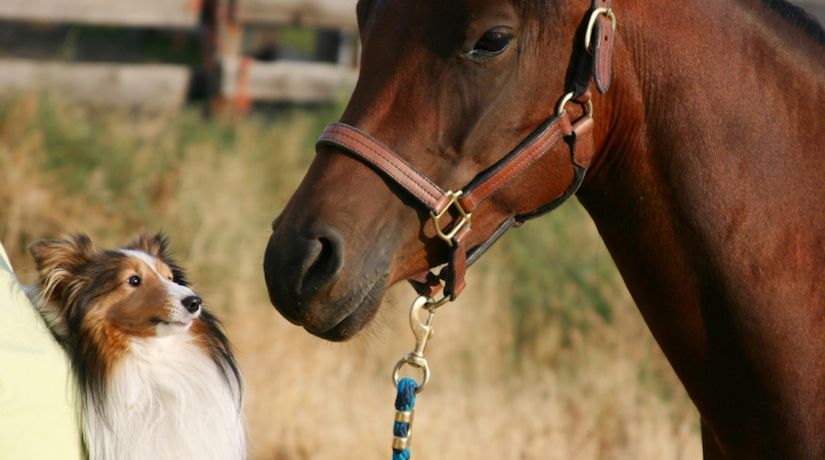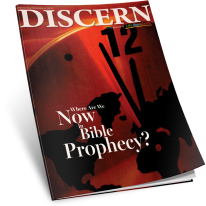We really love our pets. It can be so sad when they die or we have to put them to sleep. If God can resurrect humans, then can’t He bring our pets back to life?

Animals are a special part of creation, and many of us have a special attachment to our pets. Some animals seem to have been created specifically for our enjoyment and companionship. We love them, care for them, play with them and are comforted by them.
Our pets simply become “part of the family.” It’s a genuinely sad experience when a pet dies. Often a child’s first experience with death is when he or she has to come to grips with the loss of a beloved pet.
Cartoons and children’s stories sometimes deal with the death of beloved pets by picturing them in some kind of “animal heaven.”
But does the Bible tell us why God created animals? Is there a purpose for them beyond their physical existence?
Some have a sincere question: If God plans to resurrect people, might He also resurrect animals to reunite us with those pets we came to love?
The reality is that while the Bible promises the resurrection of humans, it doesn’t say that He will resurrect animals. Why is that?
What “spirit” is in man and animals?
The Bible speaks of both humans and animals dying in Ecclesiastes 3:18-22. In verses 18-20 Solomon writes as if human life has no greater purpose than animal life—people die just like animals die, he seems to say.
But God inspired a more complete answer that shows the dramatic difference between the life of an animal and the life of a human being. Solomon used the Hebrew word ruach three times. This word has two distinctly different meanings: “breath” and “spirit.” The King James translators rendered it “breath” in the first place it appears: “Yea, they have all one breath” (verse 19).
The Hebrew word is also used twice in verse 21, where the translators chose to use the English word “spirit.” But notice the contrast that God inspired between the end of an animal’s life and that of a human being. Solomon wrote, “Who knows the spirit of the sons of men, which goes upward, and the spirit of the animal, which goes down to the earth?” The implication is that at death the “spirit of man” returns to God; the breath (in the case of animals) just expires.
God inspired Job to show that a human being has both a spirit and breath (Job 32:8). Yet the Bible reveals nothing comparable about animals.
Distinctiveness of the “spirit in man”
The fact that the spirit of man goes back to God upon death is confirmed in Ecclesiastes 12:7, as well as in Matthew 27:50; Luke 23:46; John 19:30; and Acts 7:59.
The spirit that God places in every man enables the human brain to function as the human mind, capable of many marvelous achievements. This underscores a further difference between animals and humans: although some animals possess a certain amount of intelligence and a limited ability to communicate, they clearly do not have a mind as a human does. Rather, God has created animals with instinct to act the way they do.
The Bible describes the action of the spirit in man in a way that suggests it can retain a record of everything about an individual, perhaps for God to use in resurrecting that person at the time of His choosing. (That would seem to be the implication of God receiving a person’s spirit upon death. Read more about how it is like a blueprint in the article “Spirit in Man.”)
Based upon the Scriptures, we conclude that God did not put a spirit into an animal for the purpose of resurrection. Resurrecting animals is nowhere indicated or implied in God’s Word.
Take this one step further: If God were to resurrect a beloved cat or dog, would it not seem logical for Him to resurrect all animal life? Where would He draw the line? Would He include insects, sea creatures and dinosaurs? At what point in His plan would God resurrect all animal life? What purpose would it serve, according to His revelation to us in His Word?
The truth of the Bible is that God created human beings in His own image, according to His likeness. Genesis 1:26-27 shows that He viewed His creation of humans this way from the very beginning.
Animals, on the other hand, are simply described as being each “according to its kind” (Genesis 1:21, 24-25). Just as animals reproduce after their own kind, so God is reproducing Himself through humans created after the God kind. We are literally children of God. Animals were created by God to serve humanity, which was charged with the responsibility of managing and caring for all God’s creation (including animals).
God is working with humans for an ultimate purpose and destiny in a way He is not with the animal kingdom.
To be enjoyed and loved
The human experience shows that God must have created some animals to be our pets, companions and helpers. No doubt He enjoys His animal kingdom too! It’s a wonderful joy and blessing to be able to enjoy the love and companionship of our pets today. That’s a natural, normal, healthy human capacity.
Yet when we think about the awesome future and incredible glory that God has prepared for those who love Him, we realize God has so much more joy in store for us that is beyond a reunion with a beloved pet. Our life in the family of God will be filled with purpose and eternal joy as coheirs with Jesus Christ in His Kingdom.
Learn more about this amazing purpose in the article “Children of God.”





